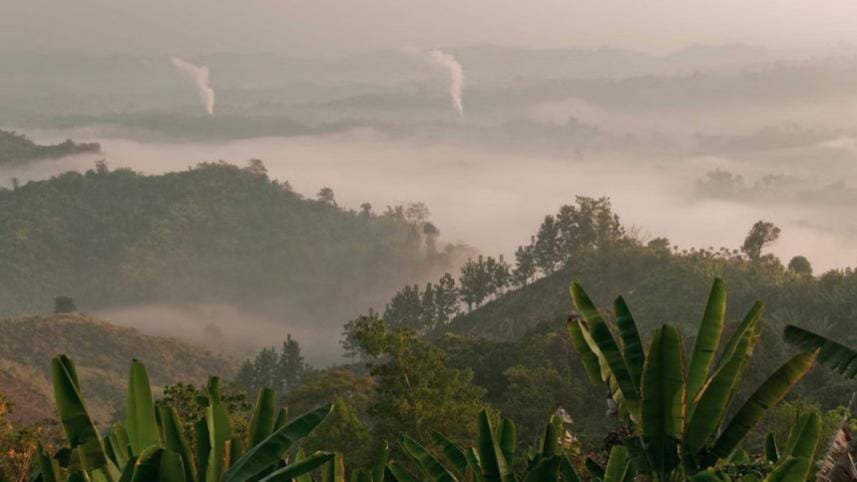27yrs of CHT peace accord: Key promises still unfulfilled

Twenty-seven years have passed but four key promises of the Chittagong Hill Tracts Peace Accord remain unfulfilled, said indigenous leaders and rights activists.
These are rehabilitation of repatriated and internally displaced indigenous people, demilitarisation, empowering district and regional councils, and making the Land Commission effective.
They alleged that the full implementation of the accord is elusive due to the unwillingness of successive governments to carry it out.
The government claims that 65 out of the 72 sections of the treaty have been fully implemented. However, leaders of the Parbatya Chattagram Jana Sanghati Samiti (PCJSS) said only 25 sections have been fully implemented and 18 partially, adding that 29 others are untouched.
The CHT Peace Accord was inked on this day in 1997 between the then Awami League government and PCJSS leaders, ending the armed conflict, as PCJSS leaders surrendered their firearms to the government.
Talking to The Daily Star, Devasish Roy, the king of the Chakma Circle, said he does not evaluate the status of the CHT Peace Accord by the number of clauses implemented.
"I focus on the qualitative aspects. From that perspective, four key elements -- rehabilitation of returnees from India and internally displaced indigenous people, demilitarisation, empowering district and regional councils, and making the Land Commission effective -- are still unmet."
He added that not a single repatriated or internally displaced indigenous person has been rehabilitated, despite the formation of a taskforce on January 20, 1998. Similarly, the district and regional councils have been rendered ineffective.
Demilitarisation has also not been achieved, even though the treaty stipulated the presence of only six camps, he said, adding that the Land Commission, formed in 2001, has yet to resolve any land dispute.
Dipayan Khisa, a PCJSS central committee member, said that despite being a signatory to the accord, the AL government has betrayed the CHT people as it did not implement the treaty fully.
"Voter lists of the CHT permanent residents must be prepared for holding elections to three district councils, members of which elect the regional council. However, no government, including the Awami League, has taken any steps to formulate the voter lists."
In the absence of such lists, polls in the three hill districts have not been held and consequently, the regional council elections could not take place, he said, adding that the district council members are replaced whenever the government changes.
The PCJSS leader alleged that the district councils function as a tool of the government, turning the three district councils into factories for implementing the ruling party's agenda without respecting the highest administrative body in the hills, the regional council.
Santoshita Chakma Bakul, general secretary of the Parbatya Chattogram Jumma Kalyan Samity, said a separate 20-point treaty was signed with the government on March 9, 1997, before the CHT Peace Accord, in which the government promised rehabilitation of the returnees from India.
"A taskforce was formed on January 20, 1998, for rehabilitation, but not a single person has been rehabilitated to date, as the issue relates to the Land Commission, which could not resolve any disputes because the government failed to formulate its regulations."
He demanded that the government prepare the regulations for the commission immediately.
Shamsul Huda, executive director of the Association for Land Reform and Development, said the law under which the Land Commission was formed contradicted the CHT Peace Accord, and it took until 2016 to amend the provisions of the law.
"After 2016, the Land Commission managed to hold a few meetings. But it could not convene meetings regularly due to opposition by a Bangalee organisation in the CHT. A powerful group supporting this organisation has prevented the commission from functioning."
He added that over 28,000 land-related complaints remain unresolved because the Land Commission is dysfunctional.
"To make the commission effective, regulations need to be prepared as early as possible. Despite repeated requests from the regional council, I don't understand why the relevant ministry has not taken any steps in this regard."




 For all latest news, follow The Daily Star's Google News channel.
For all latest news, follow The Daily Star's Google News channel.
Comments